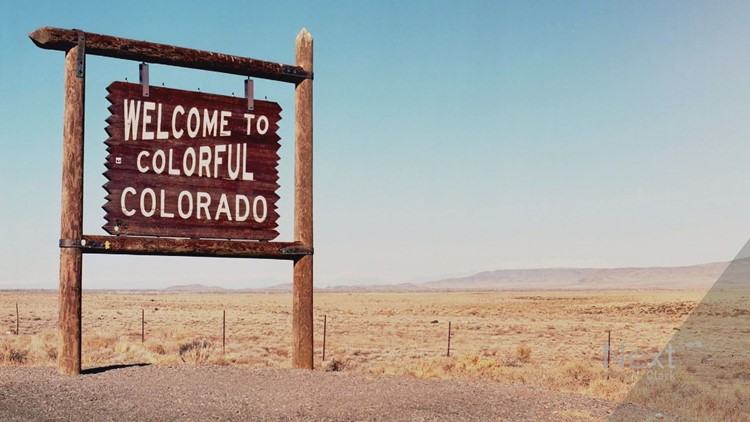KUSA — Every race is important, but there are few key races, amendments and propositions that could change the course of history in not only Colorado, but the political climate in the rest of the country.
When the polls close on Tuesday evening, keep your eyes focused on the following results:
Colorado Congressional District 6 - Republican Mike Coffman vs. Democrat Jason Crow
Control of the U.S. House of Representatives is at stake. Republicans want to maintain control. Democrats are hopeful to tip the balance. In Colorado, this race is drawing a lot of attention – and lots of campaign contributions.
Five-term incumbent Republican Mike Coffman faces an aggressive and well-funded challenge from Democrat Jason Crow, an attorney and first-time candidate tapped by the National Democratic Party.
Coffman has served as the U.S. Representative for CO-6 since 2009 and previously served as secretary of state of Colorado and as Colorado state treasurer.
Opponent Crow is a military veteran, like Coffman, but does not have a political background.
The winner could determine the balance of power in Congress. The 6th Congressional District has been held by Republicans for the past several election cycles.
Colorado's governor's race - Republican Walker Stapleton vs. Democrat Jared Polis
If Walker Stapleton were to win, he would be the first Republican governor in the Centennial state since 2007 - when Bill Owens served Colorado for two terms.
If Jared Polis were to win, he would be the first openly-gay governor to be elected in the United States. Jim McGreevey, who served as the governor of New Jersey from 2002 until 2004, said he was gay right before he resigned.
As expected, President Donald Trump endorsed Stapleton on Twitter twice so far this election season.
Colorado's current governor, John Hickenlooper, is termed out and flirting with a presidential run.
Proposition 112
Proposition 112 would create 2,500-foot buffer zones around "occupied structures" and "vulnerable areas" where future oil and gas production would be off limits.
Current state regulations, approved in 2013, set buffer zones that prohibit oil and gas production within 500 feet of homes and occupied buildings.
A 500-foot setback translates to a circle of about 18 acres around any given point, while a 2,500-foot setback would prohibit oil and gas development in a circle of about 450 surrounding acres around any given point, according to an assessment by the Colorado Legislative Council.
State revenue and expenditures would decrease under Proposition 112, according to the Legislative Council Staff’s initial fiscal impact statement.
Under Proposition 112, 78.1 percent of Weld County’s total land surface – private, public, state and federal land – would become off-limits to future oil and gas production.
In the state’s next four largest oil and gas producing counties – Garfield, La Plata, Rio Blanco and Las Animas, which all contain large tracts of federal lands – Proposition 112’s 2,500-foot setback would eliminate future oil and gas production on between 98.6 percent and 99.9 percent of non-federal lands.
Proposition 109 & 110
Both of these ballot measures are focused on fixing Colorado's roads (Prop 109 is literally called "Fix Our Damn Roads").
Proposition 109 authorizes bonds for transportation projects without raising taxes, while Proposition 110 authorizes bonds for transportation projects and raises taxes to repay the debt.
It's possible both could pass. It's also possible both could fail.
"If (Propositions) 109 and 110 both pass, that is a good problem for CDOT to have," said CDOT spokeswoman Amy Ford. "Projects will get built, that's the real quick answer."
Amendment 73
If it passes, Amendment 73 would change the state constitution and state law on how tax revenue is raised to fund public education, from preschool to grade 12.
Amendment 73, for the purpose of public education funding, would eliminate the flat tax. It would raise individual income taxes in a graduated, progressive manner on taxable income greater than $150,000 per year. It would increase the corporate tax rate from 4.63 percent to 6 percent. Revenue raised would be exempt from TABOR limits.
Amendment 74
This amendment would change the state Constitution to allow property owners to be compensated by taxpayers if their land is "taken, or damaged, or reduced in fair market value by government law or regulation." Amendment 74 shares connections with Proposition 112.
Amendment 74 is opposed by several municipalities and conservation groups. They contend that the measure would create a flood of lawsuits filed by property owners.



